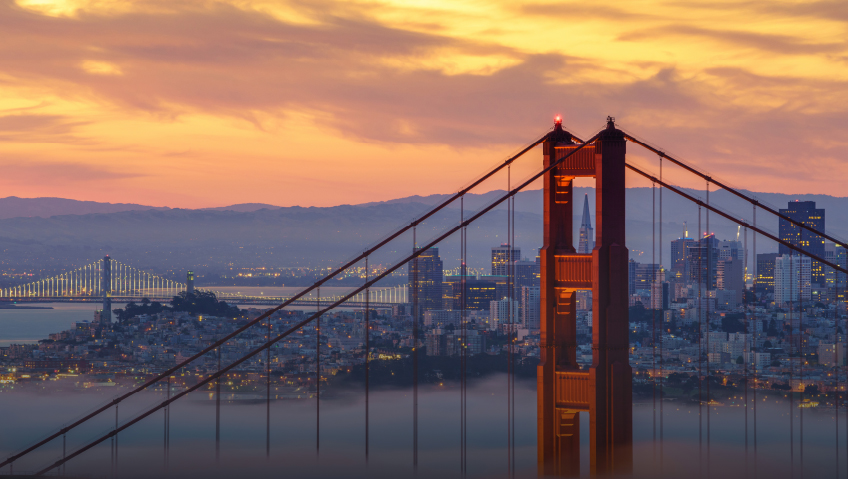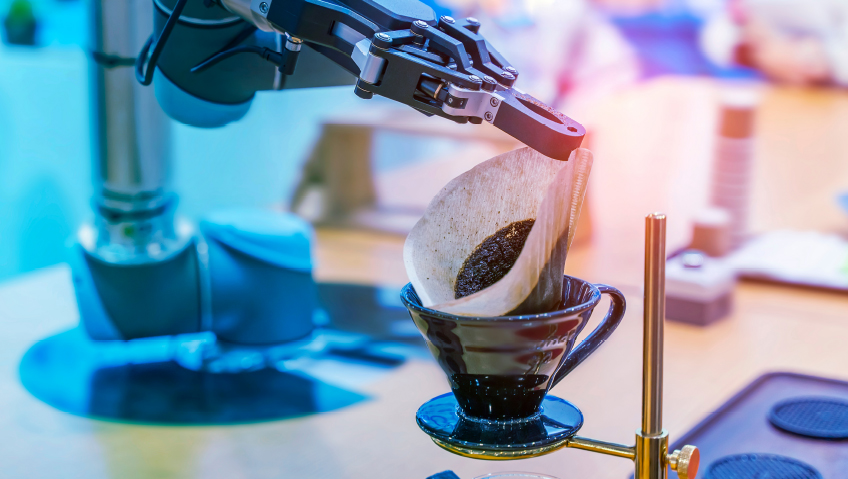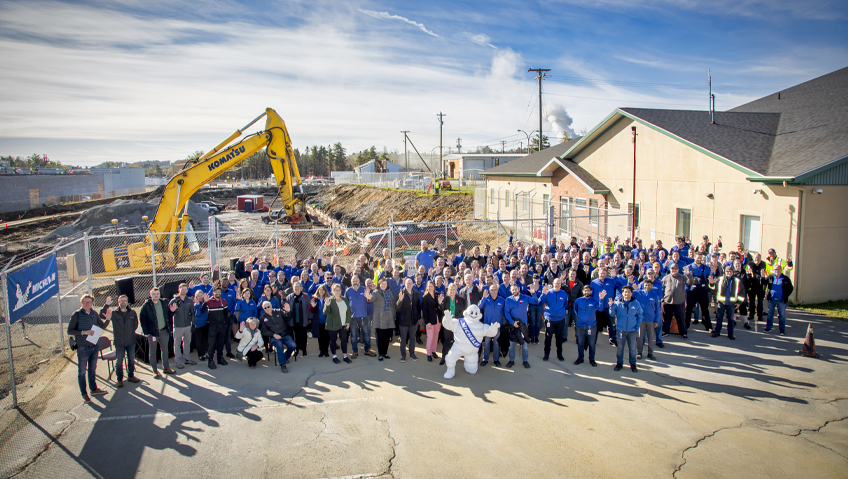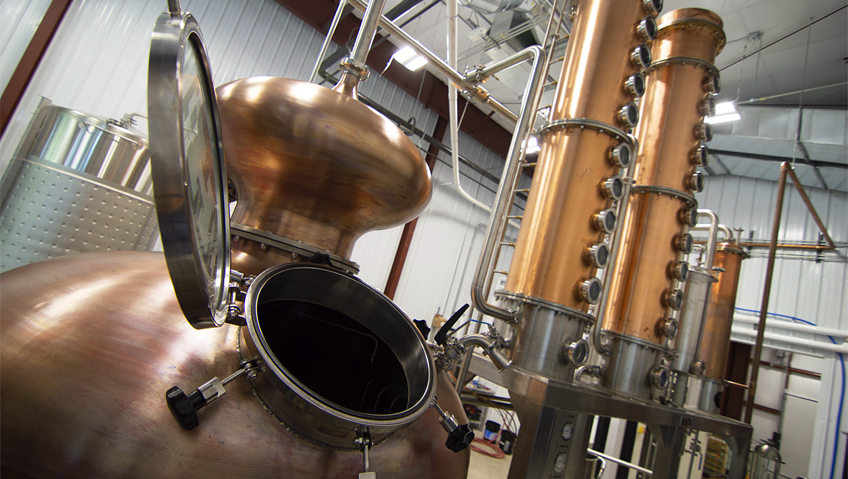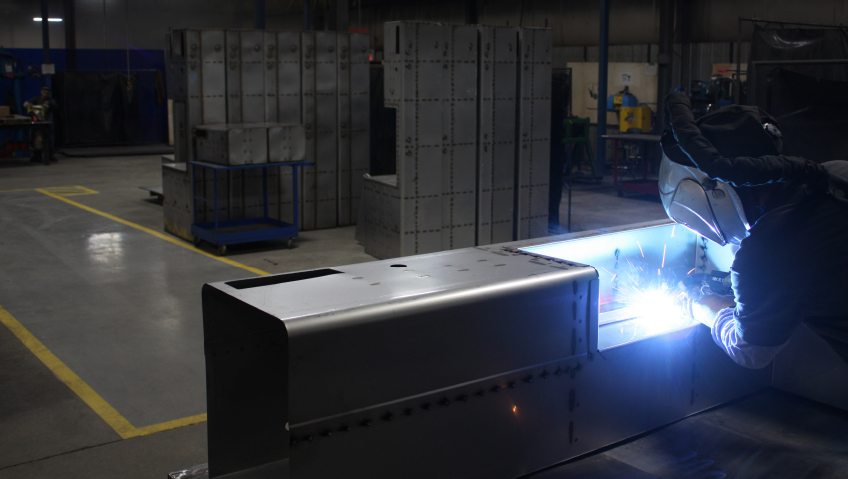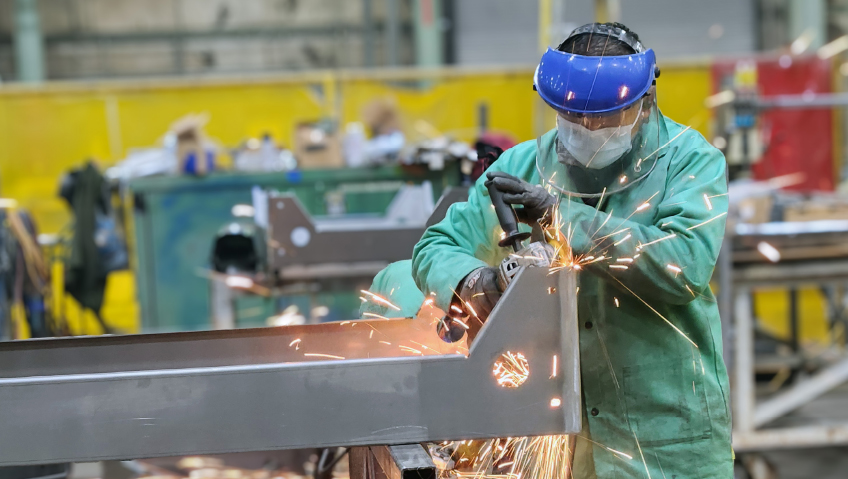Wearing flowers in your hair has new significance when visiting San Francisco in the 21st century. Perhaps not such a far cry from the lyrics described in Scott McKenzie’s 1967 hit song, the city is once again in the spotlight for being an international thought leader. As is typical here, technology and innovation play the lead role in welcoming the future.
In September 2015, the United Nations launched 15 sustainable development goals to guide humanity toward a net zero future. Since then, much has been done to achieve these goals in time for its 2030 Agenda for Sustainable Development. One of its challenges, however, is finding the technology we need to take us to a more sustainable, carbon-neutral future. Now, a new solution is giving wings to the dreams of promising contributors. By providing equal opportunity on an effective global platform—alongside sufficient funding—an entirely new movement is stimulating innovation.
In response to the UN’s initiative, an unlikely combination of partners recently started a fascinating concept that could forever change how planet-friendly innovation runs in major metropolises. UpLink, a facilitation platform housing open innovation that focuses on creating worldwide equal opportunity and equity by connecting businesses, investors, and innovators, was launched in 2020.
Made possible by collaborators World Economic Forum, Deloitte, and Salesforce, a customer relationship management software giant at home in San Francisco, UpLink connects big-ticket investors, non-profits, and even governments with fresh, sustainability-focused innovators to help stimulate intelligent, long-term business biomes that support the growth of resulting companies in response to and in line with the United Nations’ Sustainable Development Goals.
To date, the platform has handpicked over 430 sustainability-focused small business owners to join over 51 aligned urban initiatives. The current challenge, Yes San Francisco (SF), has around 14 participating thought leaders bringing their concepts to market with the help of more than 38 financial backers. “Ideas have to come from somewhere. They don’t magically appear as late-stage companies that are easy to invest in and without risk,” John Dutton, head of UpLink at the World Economic Forum in Geneva, Switzerland, said at Davos 2024, the global thinktank where leaders gather to find creative solutions to pressing issues. “Innovative technologies need venture capital and other types of support to become scalable solutions,” Dutton continued.
In June 2023, the three collaborators introduced the world to its first voyage into establishing the UpLink, followed by Yes SF, Urban Sustainability Challenge as a force for life-affirming change in how humanity and, more importantly, the world of trade approaches innovation and environmental sustainability—all underscored by providing the economic requirements for developing technology that can be implemented successfully as new Earth-saving applications. San Francisco (Yes SF) was the first to run its Urban Sustainability Challenge, which rendered a generous harvest of incredible concepts.
As a collaboration between Salesforce, Deloitte, San Francisco Chamber of Commerce, et al, the initiative welcomed innovators from around the world to contribute their urban sustainability start-up technologies to be run and tested in the Golden City. In exchange, they receive guidance alongside financing for further development with the help of Citi Impact Fund. Referred to as ‘ecopreneurs’ by Salesforce’s Suzanne DiBianca, Executive Vice President and Chief Impact Officer, the challenge was an opportunity for talented, visionary individuals to step up to their purpose within the bigger scheme of trade and green economics.
A significant part of the initiative’s approach to creating equality during the process was to provide fair access with the help of businesses looking to move to the San Francisco area and established outfits that have become part of the community. “The Challenge provides an opportunity to help support the San Francisco community in addressing some of its biggest challenges,” Kwasi Mitchell, Chief Purpose and DEI officer at Deloitte, said in an official report. Part of the mission to create equity through Yes SF was to establish new ways of stimulating employment opportunities and providing nourishment and good-quality water to the city. All while also returning a zest for life to forgotten or rundown areas across San Francisco through the sustainability efforts of contributors’ innovations.
Starting in the 1700s as Yerba Buena (or good herb—referring to several mint varietals), it seems almost poetic that San Francisco found itself at the center of good herbs every so often over the decades. Once the home of the era-shifting hippie movement and later the technology boom following David Packard and Bill Hewlett’s audio oscillator in the late 1930s (believed to have triggered what would become Silicon Valley), the city appears to be as comfortable with new ideas and technology as it is with good herbs in general. And so, San Francisco took this most recent arrival of new technology in its stride.
With participating contributors selected last September, Yes SF was off to an exciting start last year. And, with cities reportedly accountable for over 69 percent of greenhouse gas emissions and the growing urban sprawls we see around the world, the highly populated city appears to be in for some change. More than 848,000 people were added to its statistics in the form of births and newcomers between 2022 and 2023. For innovators, this growth was a good place to start while focusing on providing basic needs first. Solutions include exciting new ways of approaching everything from generating and storing power to taking care of trees and infrastructure.
Small businesses whose technologies feature here include Sun Ice Energy, solar power storage technology that applies a proprietary material cycling between frozen and melted states to hold and release energy as needed. There is also BluumBio, which employs fungi and enzymes of tropical trees to rid soil, water, and air of industrial pollution, while Babylon has come up with vertical food farming units that can be managed remotely to render wholesome, fresh produce indoors. Moxion provides mobile electric vehicle charging units that supply up to 15 hours of charge to high-volume events and off-road field vehicles.
There is even an interactive application taking care of the well-being of urban trees and infrastructure. By inviting proactive locals, artificial intelligence, and a range of other tools, Taro AI enables stakeholders to manage and stay on top of park, forest, and building maintenance. Posh Electric aims to outperform diesel generators with its snazzy off-grid, 200kWh turnkey energy support in the shape of mobile clean energy battery units complete with air-cooling HVAC systems and Underwriters Laboratories certification.
Elegantly designed Flower Turbines offer an answer to concerns about wildlife, especially bird populations, that are under threat from traditional wind turbines. Sporting sophisticated biophilic design inspired by tulip petals, the pared-down design of these silent wind shells would possibly be every bit as at home in Scandinavia as they are in America. Used to charge smaller batteries, like those of electric bicycles, it would be interesting to see how city planners establish these turbines in urban landscapes. These are just a few ideas being rolled out as part of Yes SF, with many more to follow as the initiative expands.
With the World Economic Forum predicting that two out of every three people will settle in urban areas in the next 28 years, developing strategies for raising standards and quality of living is imperative to creating healthier cities. As UpLink establishes and develops its flex, it is exciting to see what the future brings for Yes SF and its Urban Sustainability Challenge as we hurtle, apparently ever faster, toward 2030 and the urgent mandates dictating its welfare.

